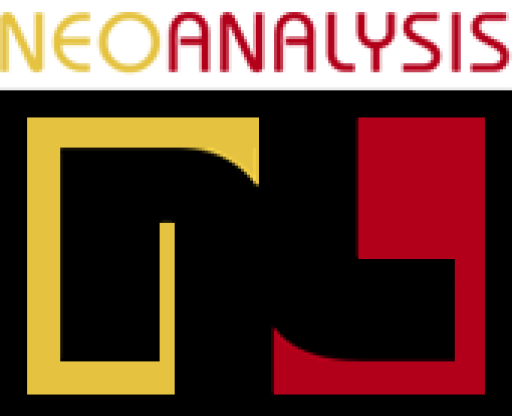
European Legislation on Human Rights: A Cornerstone for Justice and Equality
Human rights are at the heart of the European legal and political framework. Grounded in principles of dignity, freedom, democracy, equality, and the rule of law, European human rights legislation protects individuals from violations. It ensures accountability for those who infringe upon these rights. The European Union (EU) and the Council of Europe have developed comprehensive legal mechanisms to uphold these values, demonstrating a commitment to creating a fair and inclusive society.
Foundational Documents
The cornerstone of European human rights legislation is the European Convention on Human Rights (ECHR), established by the Council of Europe in 1950. The ECHR sets out fundamental rights and freedoms, such as the right to life, freedom of expression, and protection against torture. It applies to the 46 member states of the Council of Europe and is enforced by the European Court of Human Rights (ECtHR). Individuals, groups, and states can bring cases to the ECtHR if they believe their rights under the Convention have been violated.
The Charter of Fundamental Rights of the European Union, which became legally binding in 2009 with the Treaty of Lisbon, complements the ECHR. The Charter consolidates rights from various sources, including the ECHR, EU treaties, and international law. It covers six categories: dignity, freedoms, equality, solidarity, citizens’ rights, and justice. The Charter applies to EU institutions and member states when implementing EU law.
Legislative Framework
European human rights legislation is underpinned by robust legal instruments that address specific issues. These include directives, regulations, policies targeting discrimination, labour rights, and data protection. Key examples include:
- The Equal Treatment Directives: These prohibit discrimination based on gender, racial or ethnic origin, religion, disability, age, or sexual orientation in employment and other areas.
- The General Data Protection Regulation (GDPR) is landmark legislation that ensures individuals control their data and balances technological innovation with privacy rights.
- The Victims’ Rights Directive ensures that victims of crime receive appropriate support, protection, and access to justice.
The Role of Institutions
Several institutions are pivotal in enforcing and developing European human rights legislation. The ECtHR interprets and enforces the ECHR, setting important legal precedents. Within the EU, the European Court of Justice (ECJ) ensures the uniform application of EU law, including human rights protection. Various organisations, including the European Ombudsman, which conducts investigations into complaints regarding maladministration within European Union institutions; the Fundamental Rights Agency (FRA), which offers expert guidance on issues related to fundamental rights; and the Commissioner for Human Rights of the Council of Europe, which advocates for the promotion and respect of human rights, play critical roles in enhancing awareness and accountability.
Challenges and Future Prospects
Despite its robust framework, European human rights legislation faces significant challenges. Rising populism, xenophobia, and digital threats test the resilience of these protections. However, the system has shown remarkable resilience in the face of these challenges. The migration crisis has highlighted gaps in the system, such as the treatment of asylum seekers and refugees. Additionally, disagreements between member states over implementing specific human rights standards, such as LGBTQ+ rights, have revealed inconsistencies.
The EU and the Council of Europe continue to innovate to address these challenges. Initiatives like the European Rule of Law Mechanism aim to monitor and strengthen adherence to human rights principles across member states. Moreover, there is an increasing focus on adapting laws to address emerging issues affecting human rights, such as artificial intelligence and climate change. These ongoing efforts give hope for the future of human rights in Europe.
Conclusion
European human rights legislation represents a sophisticated and evolving system of protection. Grounded in foundational treaties like the ECHR and the EU Charter of Fundamental Rights, it provides legal safeguards and reflects Europe’s commitment to upholding dignity and justice. However, maintaining its effectiveness requires vigilance, adaptability and active collaboration among institutions, member states, and civil society. By addressing current challenges, Europe can ensure its human rights framework remains a beacon of hope and justice in an increasingly complex world.
The bibliography:
- European Union. “Charter of Fundamental Rights of the European Union.” EUR-Lex. Published December 18, 2000. Accessed December 11, 2024. https://eur-lex.europa.eu/legal-content/EN/TXT/HTML/?uri=CELEX%3A12012P%2FTXT.
- European Parliament. “The Treaty of Lisbon.” Published December 13, 2007. Accessed December 11, 2024. https://www.europarl.europa.eu/about-parliament/en/in-the-past/the-parliament-and-the-treaties.
- European Union. “Equal Treatment in Employment and Occupation.” EUR-Lex. Published November 27, 2000. Accessed December 11, 2024. https://eur-lex.europa.eu/EN/legal-content/summary/equal-treatment-in-employment-and-occupation.html.
- European Commission. “Anti-Discrimination Laws.” Accessed December 11, 2024. https://commission.europa.eu/aid-development-cooperation-fundamental-rights/your-rights-eu/know-your-rights/equality/non-discrimination_en.
- GDPR.EU. “What Is GDPR?” Published May 25, 2018. Accessed December 11, 2024. https://gdpr.eu/what-is-gdpr/.
- European Commission. “Victims’ Rights in the EU.” Accessed December 11, 2024. https://commission.europa.eu/strategy-and-policy/policies/justice-and-fundamental-rights/criminal-justice/protecting-victims-rights/victims-rights-eu_en.
- European Union. “Court of Justice of the European Union.” Accessed December 11, 2024. https://european-union.europa.eu/institutions-law-budget/institutions-and-bodies/search-all-eu-institutions-and-bodies/court-justice-european-union-cjeu_en.
- European Parliament. “LGBTQ+ Rights in Europe.” European Parliamentary Research Service, 2023. Accessed December 11, 2024. https://www.europarl.europa.eu/RegData/etudes/BRIE/2023/747896/EPRS_BRI(2023)747896_EN.pdf.
- European Commission. “Rule of Law Conditionality Regulation.” Accessed December 11, 2024. https://commission.europa.eu/strategy-and-policy/eu-budget/protection-eu-budget/rule-law-conditionality-regulation_en.
Council of Europe. “Artificial Intelligence and Human Rights Strategy.” Accessed December 11, 2024. https://www.coe.int/en/web/artificial-intelligence.
